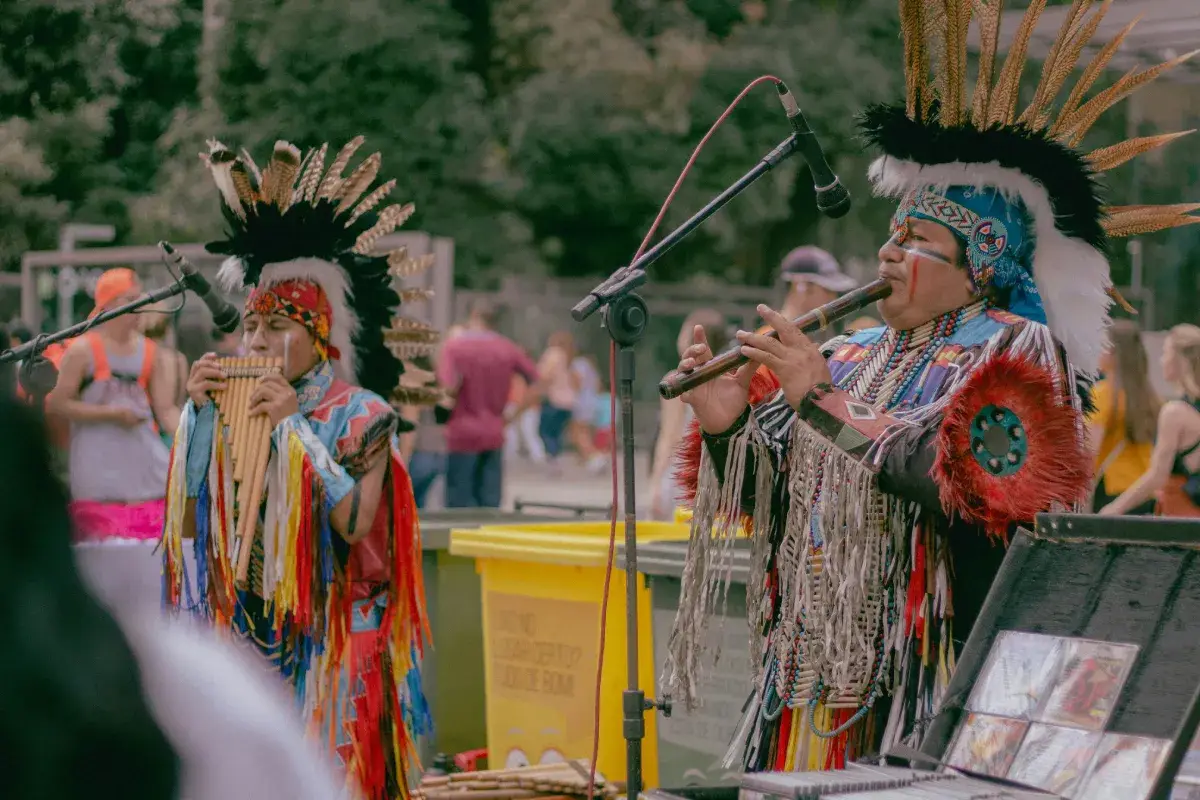Travelling is more than seeing new places. It’s about connecting with different cultures and learning local traditions. Indigenous tourism lets travellers enjoy cultural experiences. These experiences celebrate the heritage , customs, and wisdom of indigenous communities. Ethical considerations are key. They help us respect and benefit these communities instead of exploiting them.
Read our blog to learn how to engage in Indigenous tourism ethically. We will also emphasise responsible practices and the benefits of ethical travel.
What is Indigenous Tourism?

Indigenous tourism means visiting Indigenous communities and experiencing their lands and traditions.
These experiences may include:
- Guided tours by Indigenous peoples
- Participation in cultural rituals
- Visits to Indigenous-owned businesses and accommodations
The Importance of Indigenous Tourism
- Cultural Preservation: It keeps Indigenous traditions alive. It does this by offering spaces for storytelling, craftsmanship, and performances.
- Economic Benefits: When done ethically, tourism directly benefits Indigenous communities.
- Educational Value: It helps visitors better understand Indigenous history, worldviews, and challenges.
- Environmental Stewardship: Many Indigenous communities use sustainable practices. These methods help protect the environment for future generations.
How to Engage in Ethical Indigenous Tourism

Here is how you can engage in ethical Indigenous tourism:
Choose Indigenous-Owned and Operated Tours
Supporting businesses owned by Indigenous people ensures that revenue remains within the community. Seek tours and experiences led by Indigenous guides. They offer real insights into their traditions and history.
Seek Permission and Follow Cultural Protocols
Always ask for permission before visiting Indigenous lands or joining ceremonies. Some traditions are sacred, and photography, filming, or participation may not be allowed.
Be Mindful of Your Impact
Respect the environment by following sustainable travel principles. Minimize waste, avoid disturbing wildlife, and stick to designated trails. Always follow guidelines provided by Indigenous hosts.
Avoid Cultural Appropriation
Appreciating a culture is different from appropriating it. Don’t wear traditional clothing unless you’re invited. Also, steer clear of buying fake Indigenous crafts that don’t help the community.
Support Local Artisans and Businesses
Rather than buying mass-produced souvenirs, purchase handmade crafts from Indigenous artisans. This helps sustain traditional craftsmanship and provides economic opportunities for local artists.
Educate Yourself Before You Go
Read about the history, customs, and struggles of the Indigenous community you plan to visit. Understanding their background fosters more profound respect and appreciation during your visit.
Top Indigenous Tourism Destinations

Here are the top Indigenous tourism destinations for you:
Australia: Aboriginal Dreamtime Experiences
Australia’s Indigenous peoples have a rich cultural heritage of over 60,000 years. Visitors can experience:
- Dreamtime storytelling tours led by Aboriginal guides
- Bush tucker (native food) tastings
- Rock art explorations in sacred sites such as Uluru
- Indigenous-led workshops on traditional crafts and skills
Canada: First Nations Cultural Immersion
Canada is home to diverse Indigenous groups, including the First Nations, Métis, and Inuit. Ethical travel experiences include:
- Powwows and cultural festivals showcasing traditional music and dance
- Wildlife and nature tours guided by Indigenous leaders
- Staying at Indigenous-owned lodges such as those in Haida Gwaii
- Canoe excursions through traditional waterways with Indigenous guides
New Zealand: Māori Cultural Tours
The Māori people of New Zealand offer immersive experiences such as:
- Haka performances and cultural feasts
- Visits to Māori marae (meeting grounds)
- Learning about Māori weaving, carving, and tattoo traditions
- Exploring geothermal sites with Māori-led tours explaining their spiritual significance
South America: Amazonian Indigenous Communities
Deep within the Amazon rainforest, travellers can engage with Indigenous tribes in Ecuador, Peru, and Brazil. Ethical experiences include:
- Canoeing tours guided by Indigenous locals
- Learning about traditional plant medicine and sustainable agriculture
- Participating in storytelling and music ceremonies
- Staying in Indigenous eco-lodges to support local economies
Challenges and Considerations in Indigenous Tourism

Here are some challenges and considerations in Indigenous tourism:
Risk of Exploitation
Some tourism ventures may take advantage of Indigenous communities. They often commercialize traditions without giving proper consent or compensation. Travellers should be cautious and support businesses that prioritize fair and ethical practices.
Ensuring Authenticity
Not all experiences marketed as Indigenous tourism are genuinely led by Indigenous people. Verify credentials, look for Indigenous ownership, and read reviews to ensure authenticity.
Impact of Overtourism
Excessive tourism in sacred or sensitive areas can harm local environments and disrupt Indigenous ways of life. Choosing small-group tours helps mitigate this issue.
The Benefits of Ethical Indigenous Tourism
Here are the benefits of ethical Indigenous tourism:
Empowering Indigenous Communities
Ethical Indigenous tourism lets communities control how they share their culture and ensures they benefit from the tourism industry.
Preserving Cultural Heritage
Travellers support Indigenous traditions by appreciating and enjoying cultural experiences.
Promoting Sustainable Travel
Indigenous-led tours often incorporate eco-friendly practices that protect natural landscapes and biodiversity.
How Governments and Organisations Support Indigenous Tourism
Here is how the governments and organisations support Indigenous tourism:
Indigenous-Led Tourism Associations
Many countries have Indigenous-led groups that promote ethical tourism. They offer travellers accredited tour choices. Examples include:
- The Indigenous Tourism Association of Canada (ITAC)
- The World Indigenous Tourism Alliance (WINTA)
- The Australian Indigenous Tourism Council
Government Support and Policies
Many governments provide funding and policies to promote Indigenous tourism while ensuring sustainability. These policies include grants for Indigenous businesses and regulations to prevent cultural exploitation.
Travel with Respect and Responsibility
Indigenous tourism connects us with diverse cultures. It helps us learn from ancestral wisdom and supports community growth. It’s essential to approach these experiences with respect, mindfulness, and a focus on ethical travel. Choosing Indigenous-led experiences helps travellers connect with local customs. It also supports Indigenous businesses, allowing them to build strong relationships and keep Indigenous traditions alive for future generations.
Expanding Indigenous tourism means adding ethics and supporting local economies. This approach creates a more meaningful travel experience. The key is to be an informed and respectful visitor who prioritises ethical engagement over mere entertainment.

